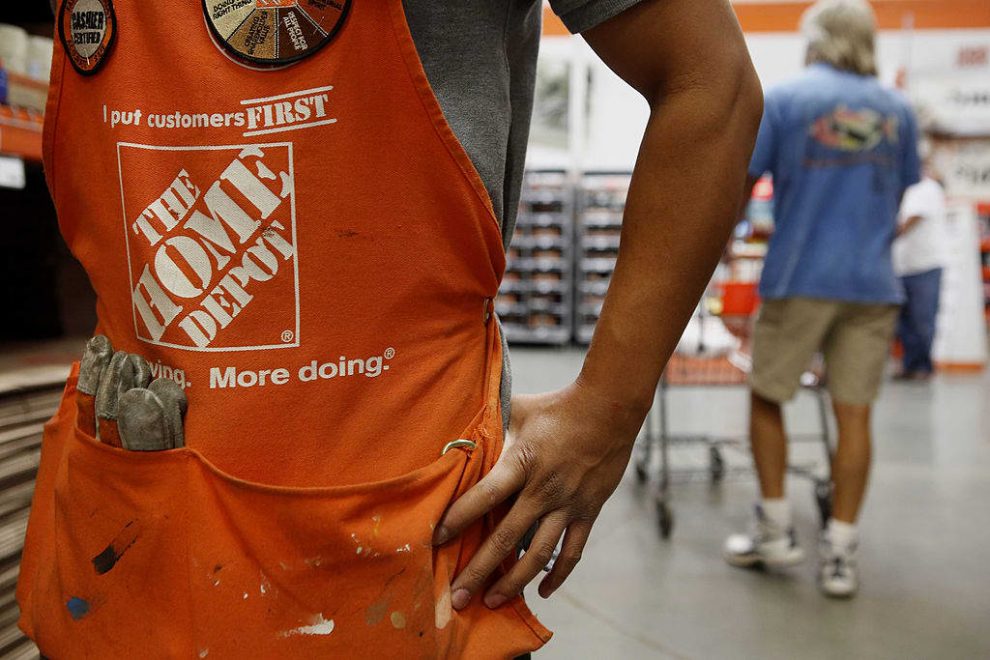
Patrick T. Fallon | Bloomberg | Getty Images
Home Depot shares fell nearly 3% Tuesday after the company reported first-quarter sales rose sharply, but profits were weighed down by extra costs related to the coronavirus pandemic.
For the first quarter that ended May 3, Home Depot reported that net income fell 10.7% to $2.25 billion, or $2.08 per share, compared to $2.51 billion, or $2.27 per share, a year earlier. Analysts surveyed by Refinitiv expected the company to earn $2.27 per share.
Revenue for the quarter rose 7.1% to $28.26 billion from $26.38 billion a year earlier, topping analyst expectations of $27.54 billion. Home Depot’s same-store sales grew 6.4%, beating expectations of 4.4%, based on StreetAccount estimates.
However, it’s difficult to compare reported earnings with analyst estimates for Home Depot’s first quarter, as the coronavirus pandemic changes customers’ shopping patterns and adds additional labor and safety costs for companies.
Home Depot has had a few advantages going into the pandemic compared to other retailers. It’s been deemed an essential retailer in most states, so its stores have remained open. It’s invested in e-commerce and online offerings, such as curbside pickup. And spring is historically the busiest time of the year for the home improvement industry.
The Atlanta-based retailer previously said it planned to invest $3.9 billion in 2020 toward further integrating its online business with its traditional stores. The year is set to be the peak of an $11 billion, three-year investment in the effort. The investments have helped Home Depot to shorten delivery time and develop a more user-friendly website. It’s also sought to streamline curbside pickup with automated lockers for customers.
The company previously said it would hire 80,000 additional employees, with many part-time hires staffing its garden center, on par with spring hiring in recent years despite disruption from the coronavirus pandemic.
However, the company has said it canceled major spring season promotions that drive foot traffic to stores, such as Black Friday-like events. It also has been enforcing social distancing in its stores, and it distributed thermometers to employees who work in stores and distribution centers so they can monitor their temperatures.
—CNBC’s Melissa Repko contributed to this report.







